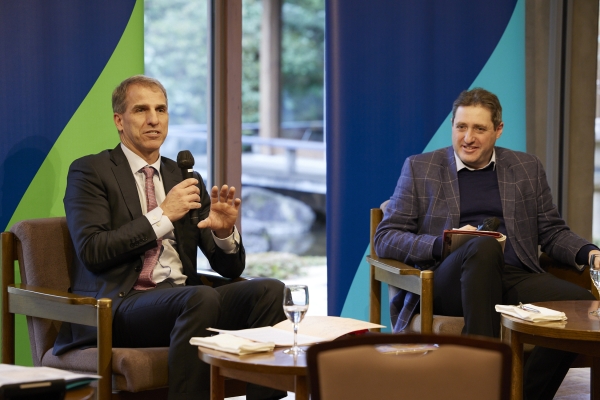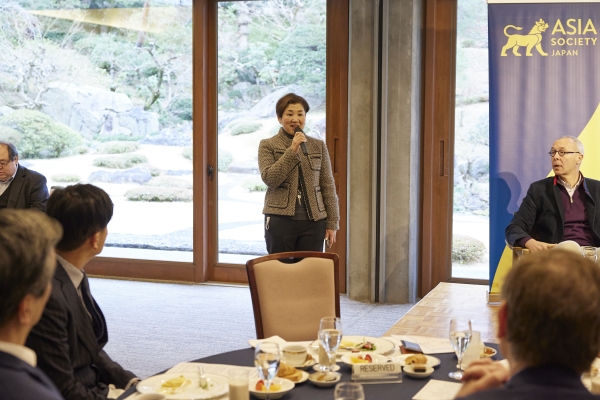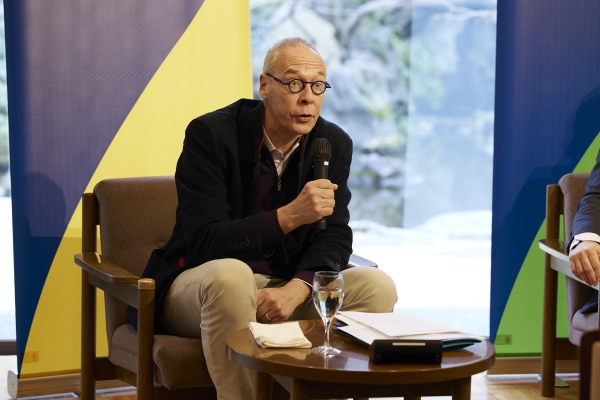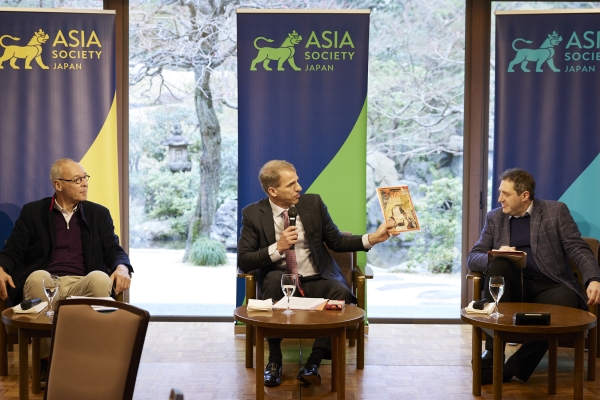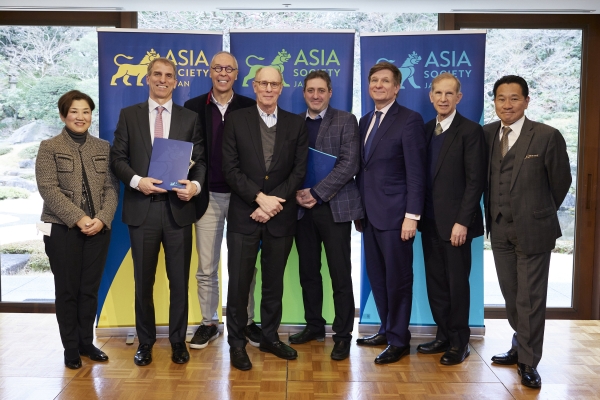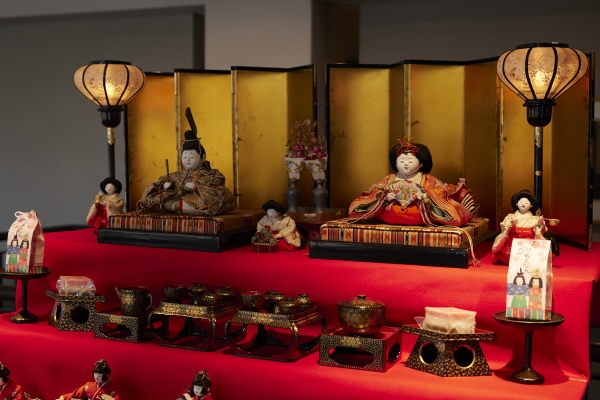Capitalism Made in Japan (Recap)
On February 14, 2023, long-term Japan investor Andrew McDermott, president of Mission Value Partners, and influential Japanese financial journalist Leo Lewis, Asian business editor at Financial Times, presented different views on capitalism made in Japan. Jesper Koll, chair of the policy committee at Asia Society Japan, hosted the program and moderated the discussion.
Is Japan really stuck in the past?
In his initial comments, Mr. Andrew McDermott expressed his concerns that the narrow financial market narrative that judges Japan solely in terms of “lost decades” based on stock prices is not only incorrect but pernicious. He is skeptical of the narrative made by leading institutions that Japanese managers need to be replaced by financial engineers from the U.S. He referred to how General Electric’s restructuring plan almost exclusively relies on “masters of Japan,” as told by its CEO, Lawrence "Larry" Culp, Jr., of General Electric. He also mentioned the one million manufacturing jobs that Japanese companies have brought to the United States in the last few years, even as U.S. companies have shut down thousands of factories sacrificing skills and resilience on the altar of efficiency.
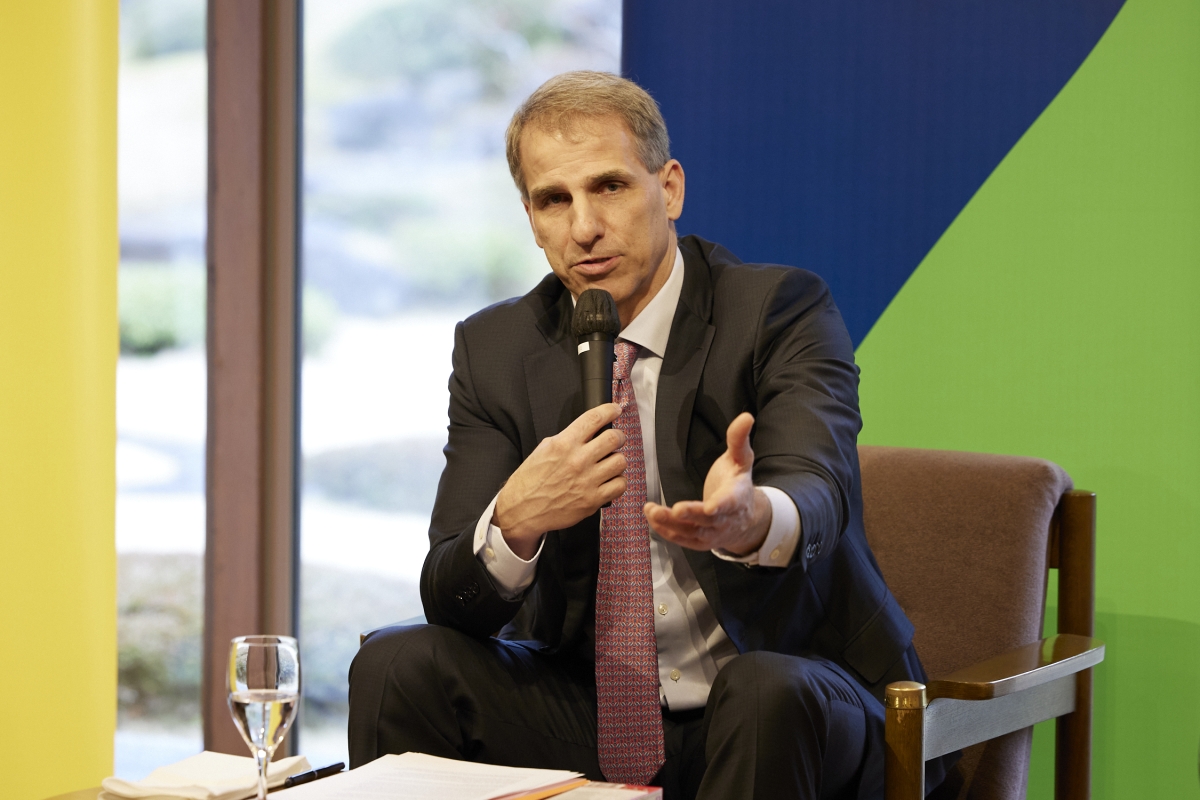
Pocky’s story
Some Japanese companies’ dividends have tripled since they proceeded to buy back shares and invest in international expansion. This has brought Japanese snacks like Ezaki Glico’s Pocky and Calbee’s Jagabee to local supermarkets in the United States. Calbee is an example of a company that went from a private company to a public company, restructuring in the public market. These are only two examples of public Japanese companies that have changed without the “help” of either activists or private equity.
Warren Buffet, who famously said in 1998, “I find very few wonderful businesses in Japan at present. This was true even when the Japanese economy was booming,” now has a rosy vision of corporate Japan’s future. How do we reconcile this with the BBC’s take that Japan is stuck in the past?
Too many listed companies
Mr. Leo Lewis reacted by saying that he didn’t consider Mr. Buffet purchasing stakes in five Japanese trading houses to be a great vote of confidence in Japan. He saw it not as an act of buying Japan but as just buying the stocks of the largest dealmaking companies in the country with cheaply raised debt.
Mr. Lewis feels that there are far too many listed companies in Japan. Japan has allowed itself a version of capitalism which is prone to a kind of flabbiness. That large number of companies has led to an almost inevitable misallocation of capital and suppression of innovation. There is a broken faith in the markets and their ability to sort of deliver the kind of rewards that they do elsewhere. This is evident in the fact that although university graduates tend to choose listed companies over non-listed companies, few graduates actually buy the stock of the company they join.

Protecting losers
In the fireside chat with the two speakers, Mr. Jesper Koll reflected on one of his early mentors in Japan telling him that the Ministry of Economy, Trade and Industry was not about picking winners but about protecting losers. The problem in Japan is not a dearth of startups but that companies are protected from exiting and are thus price destroyers.
Mr. McDermott noted that changes in Japanese companies have been positive. American companies are often run by people who do not understand actual engineering but do understand financial engineering, while Japanese companies are often run by experienced managers who have had to recover from the disastrous decisions made by their bosses during the bubble years.
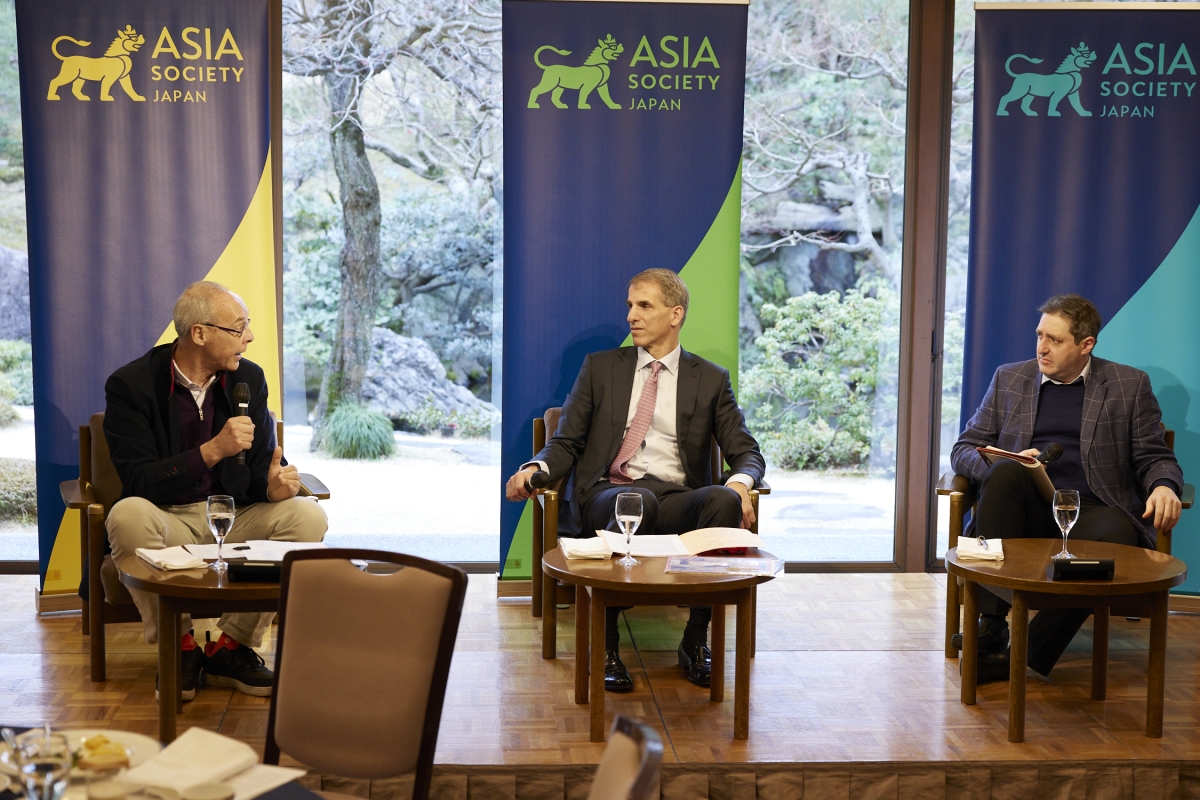
Sitting on piles of cash
Mr. Lewis refuted by pointing to the cash piles in Japan which are symptoms of broken faith in banks – companies never want to be beholden to the banks again. Just as Konosuke Matsushita once said they lend you an umbrella when it is sunny and take it away when it starts raining. Mr. Koll mentioned that the next Deputy Governor of the Bank of Japan, Mr. Himino, recently suggested banks should lend on growth prospects rather than just real estate collateral, which tells you how much work Japan’s banks have to do to re-gain relevance for Japan’s future prosperity creation.
Mr. McDermott highlighted that there was a time when the balance sheets of best-run American companies looked much like those of Japanese companies today. For example, Intel under Les Vadasz and Andy Grove had a net-cash balance sheet very similar to that of today’s Japanese companies. As Les said about Intel during the 90s: “Balance sheets were never a problem; growth was.” Mr. Koll noted that the top listed companies in Japan have seen no sales growth in the past twenty years, but corporate profits have tripled.
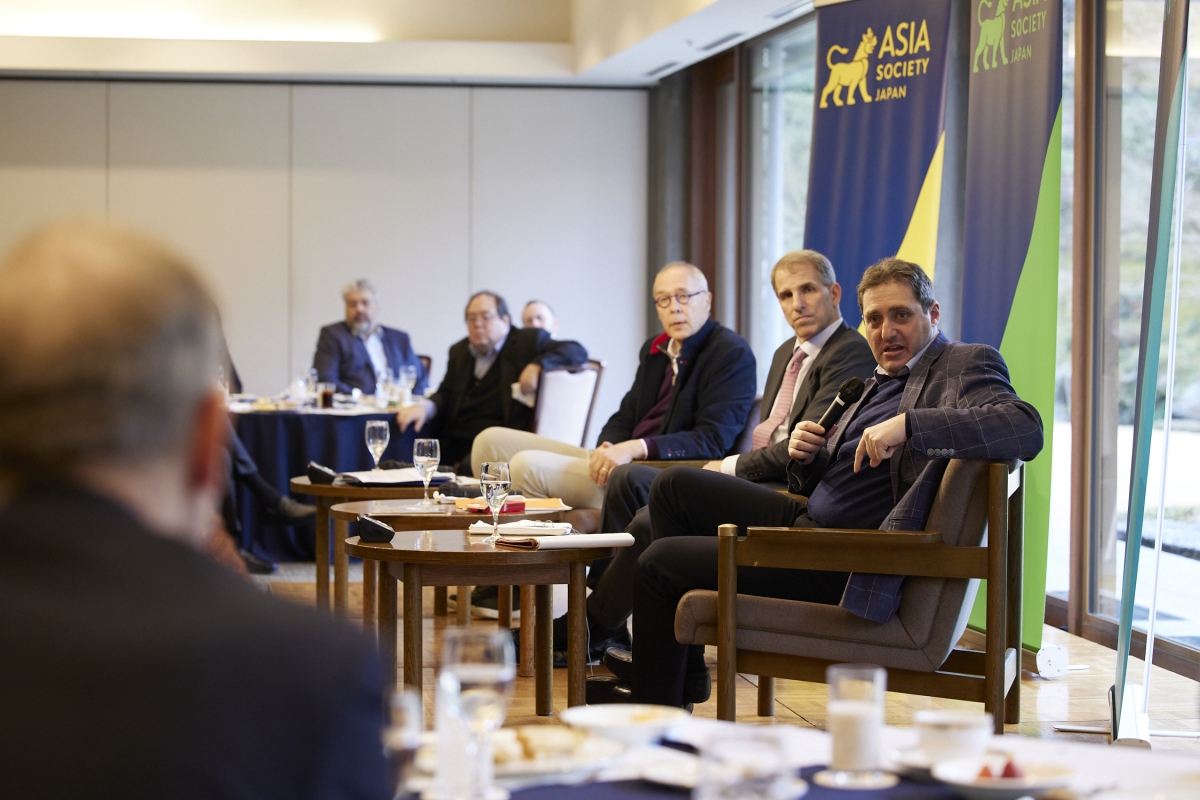
Conversation with the floor covered topics including further insight on conserving cash, the Japanese corporate structure, Japan’s lack of marketing sense, preventing Chinese access to cutting-edge technologies developed outside of China, seniority-based management versus meritocracy, the fractured form of capitalism in Japan versus wide support for socialism among American university students, Japanese leadership in climate technologies, and diversity in Japanese corporations.


